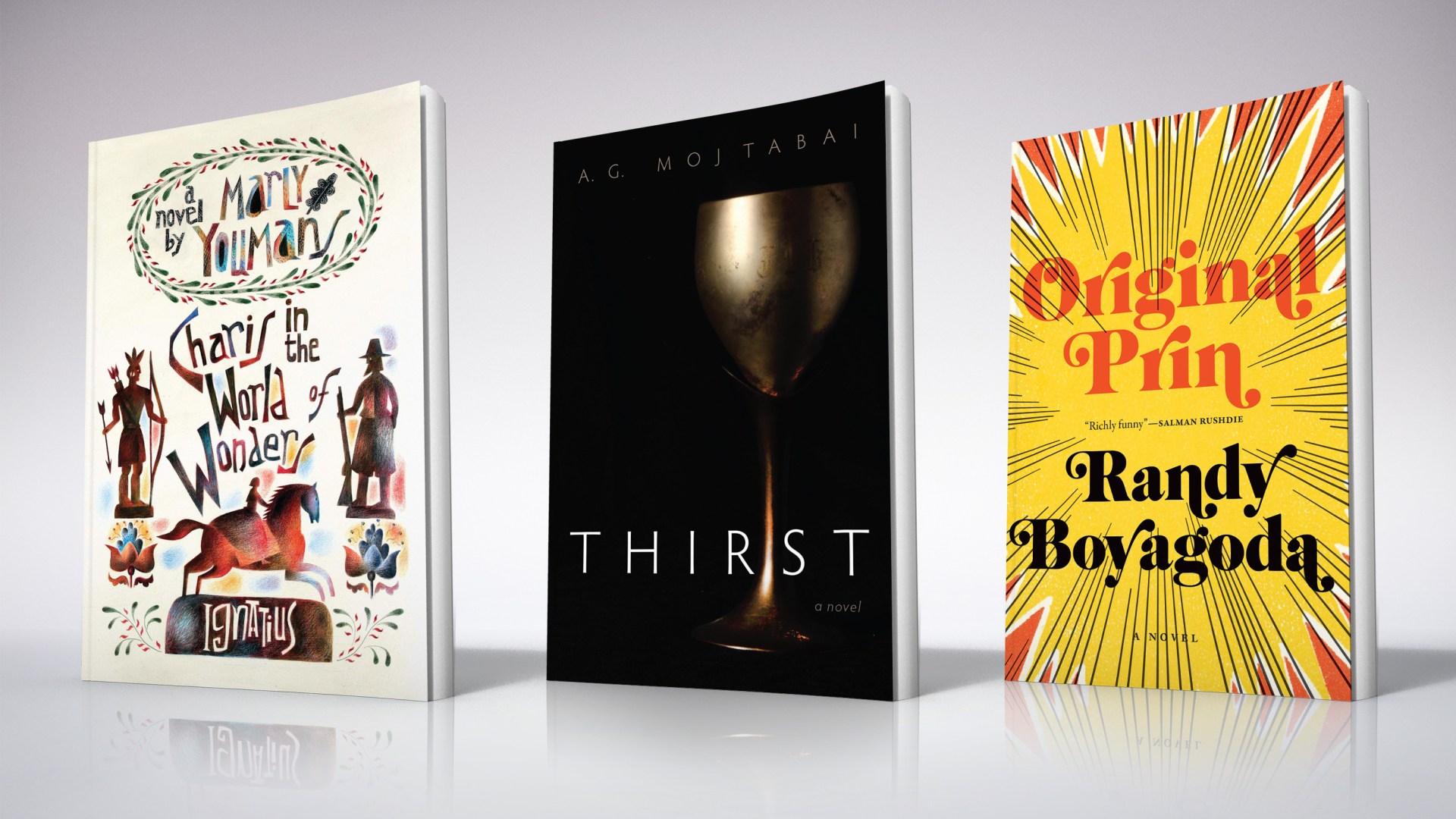Charis in the World of Wonders
Marly Youmans (Ignatius Press)
Set in Massachusetts Bay Colony during the 1690s, Charis in the World of Wonders plunges us into the mind, language, and worldview of a young woman struggling to survive yet finding grace in unexpected places. Youmans’s lush prose evokes a preindustrial, perilous, socially connected world in which the Divine has sovereign reign over outcomes both joyous and sorrowful. Reading it feels like traveling through time and space to experience reality laid bare: Life is fragile, humans need each other, and the created world is shot through with beauty, fear, mystery, and God.
A. G. Mojtabai (Slant)
If you’ve never read Mojtabai’s sparse, resonant novels, her newest, Thirst, is an outstanding place to start. It sketches the last days of Father Theo, who to the confusion and dismay of those around him, has decided to stop living. His cousin Lena, mostly secular and recently bereaved, comes to be with him, but she cannot get him to eat or drink any more than the nuns who cook for him. This novella maintains a stark quietness that belies spiritual depths. Its meditations on doubt, human life, and what waits beyond bear rereading and testify to Mojtabai’s consummate skill.
Randy Boyagoda (Biblioasis)
Original Prin opens with its hero, Prin, a Roman Catholic professor of English, taking his family to the Toronto Zoo, where he informs the kids that he has prostate cancer. It ends in the Middle East with Prin having entangled himself in a terrorist attack as he was attempting to save his failing university and recover his damaged marriage. Part satire, part farce, with nods in several literary directions, the novel moves with madcap energy as this thoroughly modern protagonist takes his culture, his family, and his Catholicism seriously while wearing them lightly. The book ends in a cliffhanger, and the sequel, Dante’s Indiana, has just been released.









